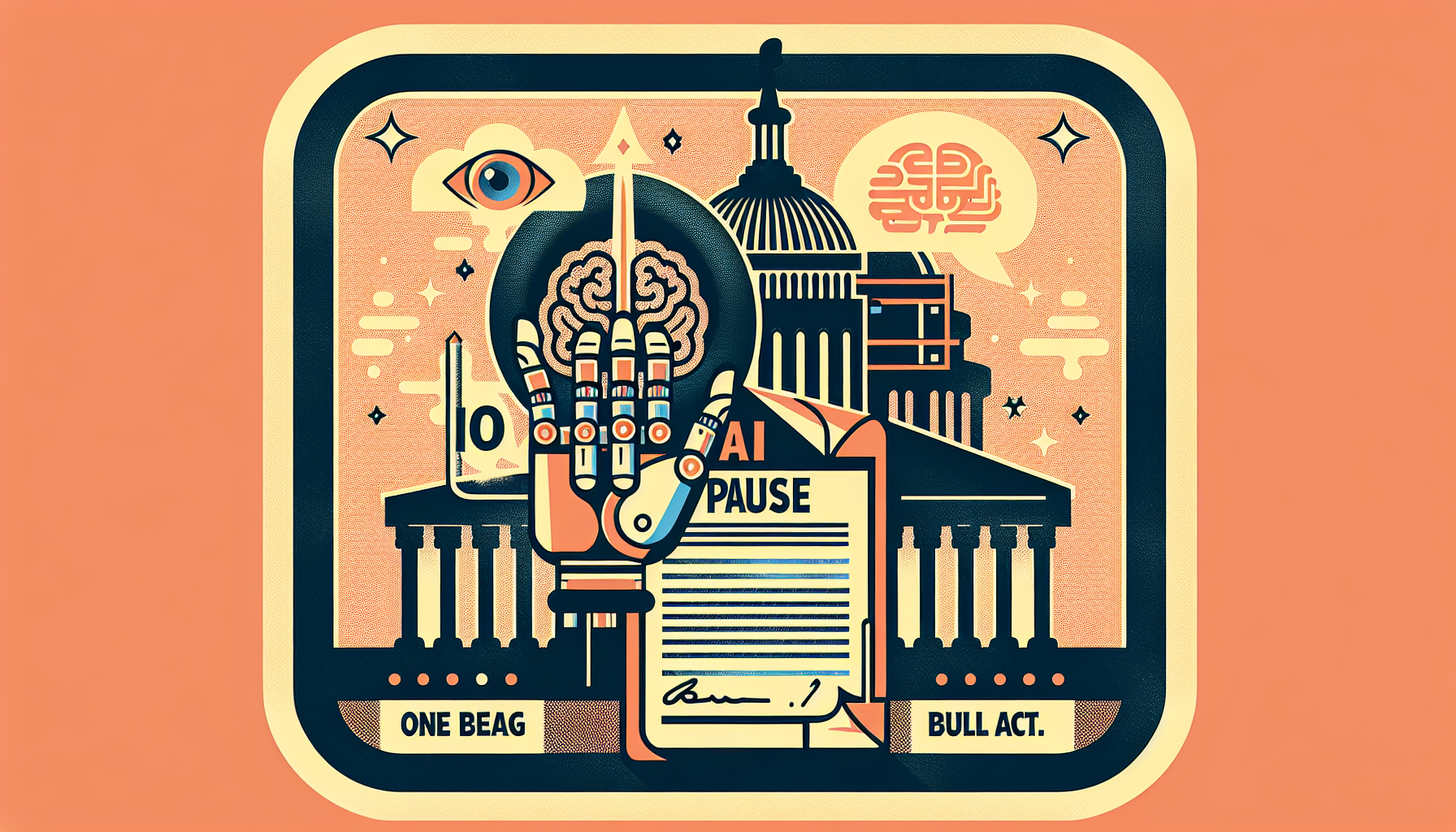In May 2025, the U.S. House of Representatives passed an ambitious bill called the One Big Beautiful Bill Act (H.R. 1). Tucked inside was a bold proposal: to put a 10-year pause on all state and local laws about artificial intelligence (AI). This measure drew deep attention, as it aimed to reshape how America handles the fast rise of AI technology.
Understanding the 10-Year Pause
The proposal would have prevented states and cities from creating or enforcing any new laws aimed specifically at AI systems. This included all software or machines using AI, machine learning, or statistical tools to support or replace human decision-making.
- All state and local rules, from guidelines for AI chatbots to regulations banning biased automated decisions, would have been put on hold for a decade.
- States breaking this pause could lose out on federal grants for broadband expansion and other important projects.
However, there were some important exceptions:
- States could still pass laws helping AI grow or operate more easily.
- Laws without real requirements for AI, or ones putting rules on all tech (not just AI), would be allowed.
- States could collect reasonable fees and require bonds for AI businesses, as with other technologies.
Why Was This Proposed?
Supporters of the pause said it was necessary for America’s future. They argued that 50 sets of different state rules would create confusion and make it harder for American companies to lead the world in AI innovation. They saw a nationwide approach—led by Congress—as better for progress and economic growth.
But not everyone agreed. Critics believed that banning states from acting would give huge tech companies too much freedom, allowing them to ignore risks tied to AI. People worried about privacy, discrimination, and fairness—especially for children, minorities, and vulnerable groups—would lose vital protections won through local laws. They pointed out that several states had already passed important safeguards, like restrictions on deepfakes or rules against automated hiring bias. All of this local action would be swept aside.
How Did Congress Vote?
The vote in the House of Representatives showed clear political lines:
- Most Republicans voted yes, arguing that the future of American technology was at stake.
- Most Democrats voted no, deeply worried about consumer safety and the loss of states’ power to act.
The bill passed, but only by a narrow margin.
The Senate’s Response
After the House vote, attention moved to the Senate. There, lawmakers and experts debated the big questions at the heart of America’s future: how to foster innovation, and how to protect the public from real AI harms.
The Senate’s parliamentarian announced that the moratorium met rules for inclusion in a budget reconciliation bill. This allowed the pause to move forward for serious consideration.
But, in a decisive moment in early July 2025, the Senate voted—strongly—to remove the 10-year ban from the larger bill. This signaled a clear desire to let states keep their right to act on AI and its growing impact on society, especially in areas such as workplace fairness and protection from discrimination.
Bigger Questions for the Future
America’s debate over AI laws is about more than just one bill or vote. It reflects the challenge faced by countries everywhere: How do we keep leading in technology while also keeping people safe?
Many Americans are now calling for stronger laws to manage AI’s risks—from lost jobs to unfair treatment and threats to privacy. The choices made by Congress in the coming years will have a powerful influence on the role AI plays in the everyday lives of millions.
| Aspect | Details |
|---|---|
| Bill Name | One Big Beautiful Bill Act (H.R. 1) |
| Moratorium Length | 10 years (proposed but later removed) |
| What Was Covered | State/local laws on AI models, systems, automated decision-making |
| Exceptions | Laws that help AI, non-substantive requirements, reasonable fees |
| House Vote | Narrowly passed, mostly Republican support |
| Senate Action | Overwhelmingly removed the 10-year ban in July 2025 |
| Main Debate | Innovation vs. protection; federal vs. state rules |
This story continues to unfold as leaders search for the right balance in guiding AI’s future, with the eyes of both the nation and the world watching closely.

Leave a Reply